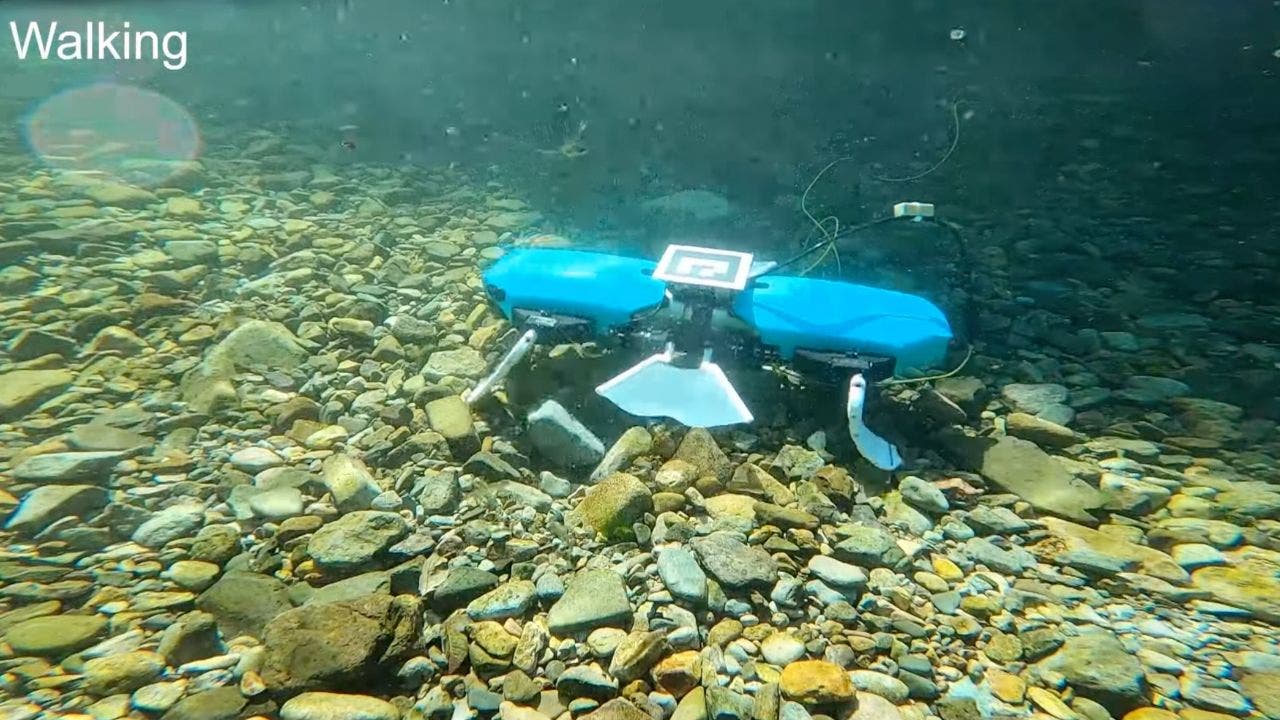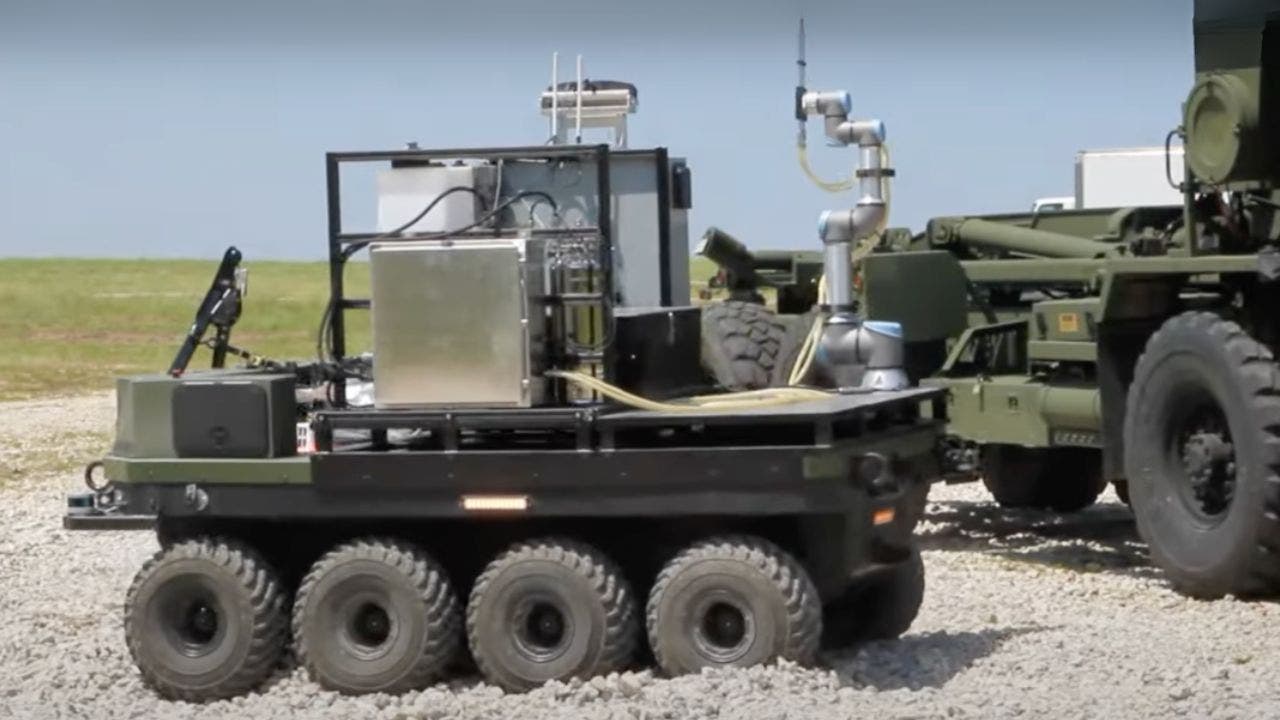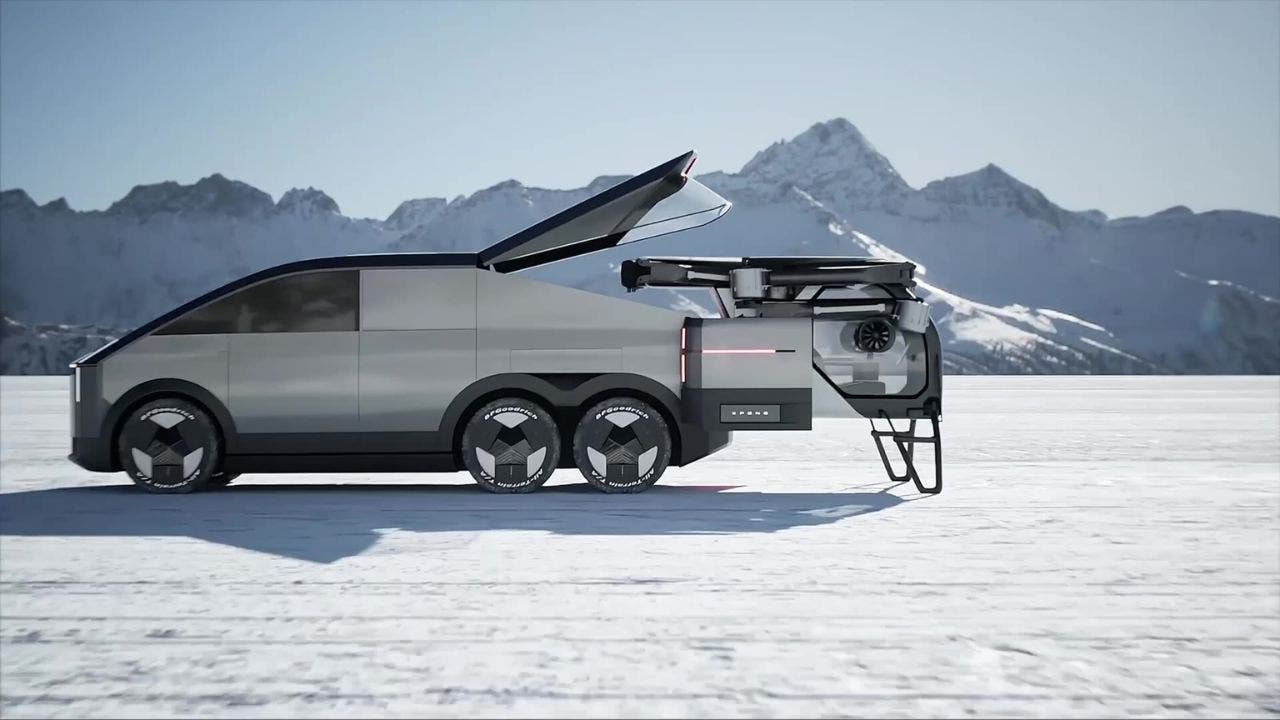Dive into the world of underwater exploration, and you’ll find a new player making waves: HERO-BLUE. This isn’t your average remotely operated vehicle (ROV); it’s an innovative robot designed to tackle the challenges of the depths of the sea with a unique set of skills.
CLICK TO GET KURT’S FREE CYBERGUY NEWSLETTER WITH SECURITY ALERTS, QUICK VIDEO TIPS, TECH REVIEWS AND EASY HOW-TO’S TO MAKE YOU SMARTER
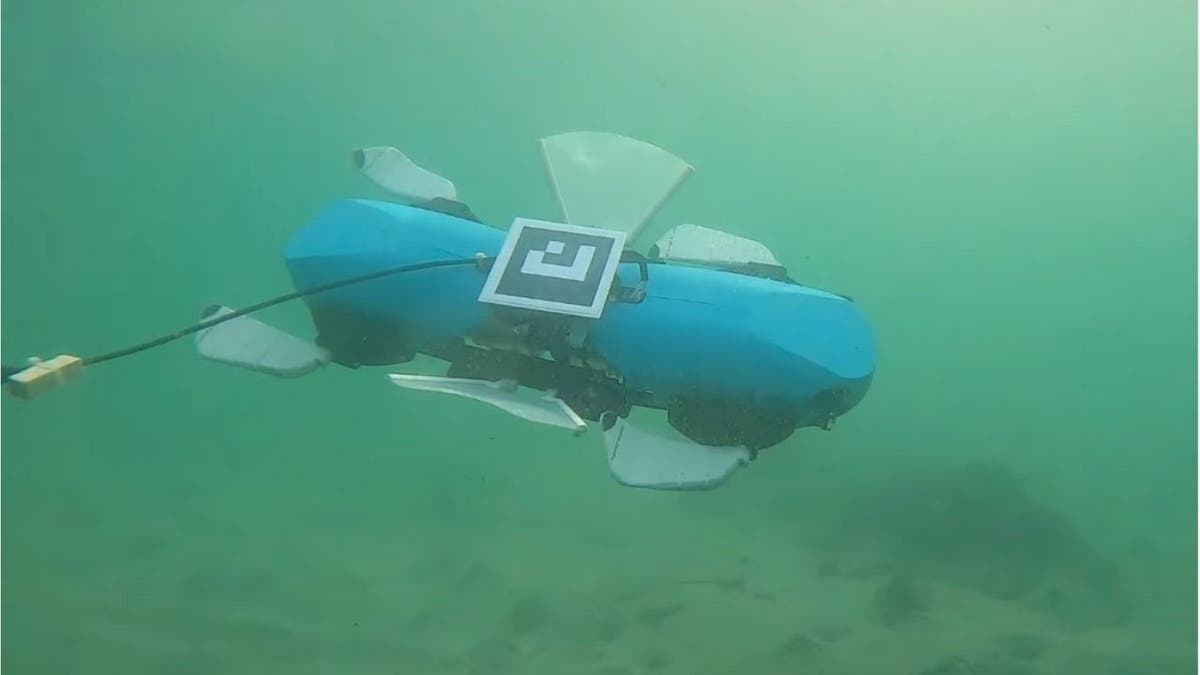
HERO-BLUE (POSTECH) (Kurt “CyberGuy” Knutsson)
HERO-BLUE by the numbers
HERO-BLUE is a proof-of-concept robot, measuring 31.5 inches by 23.6 inches by 11.8 inches and weighing 24.9 pounds. It’s remotely controlled, but with its stereoscopic vision, the future could see HERO-BLUE operating autonomously, leading the charge in underwater exploration and research.
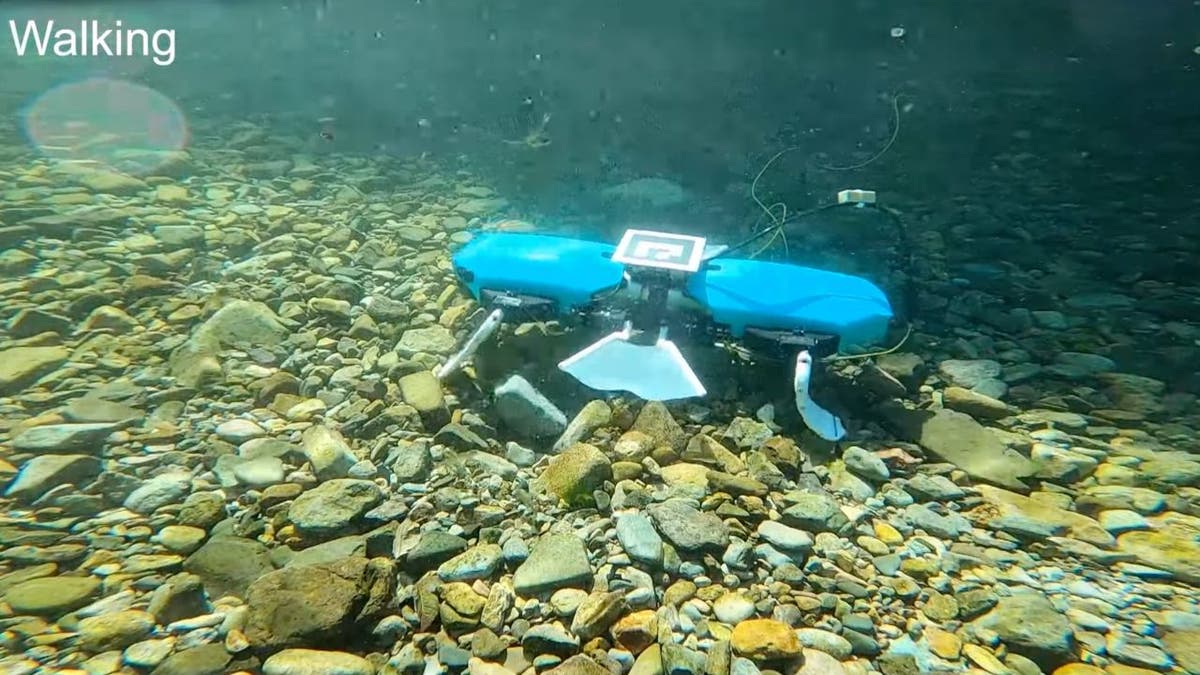
HERO-BLUE (POSTECH) (Kurt “CyberGuy” Knutsson)
MORE: DIVE INTO THE SEA WITH THIS STATE-OF-THE-ART UNDERWATER DRONE
A new breed of ROV
HERO-BLUE stands for “Hazardous and Extreme Environment Robot for Biomimetic multiLocomotion-based Underwater Expedition.” Developed by Taesik Kim and his team at South Korea’s Pohang University of Science and Technology, this experimental device is inspired by the natural world. HERO-BLUE is equipped to swim, walk and crawl its way through the most challenging environments. The journal IEEE Transactions on Robotics has recently featured a publication detailing the research.
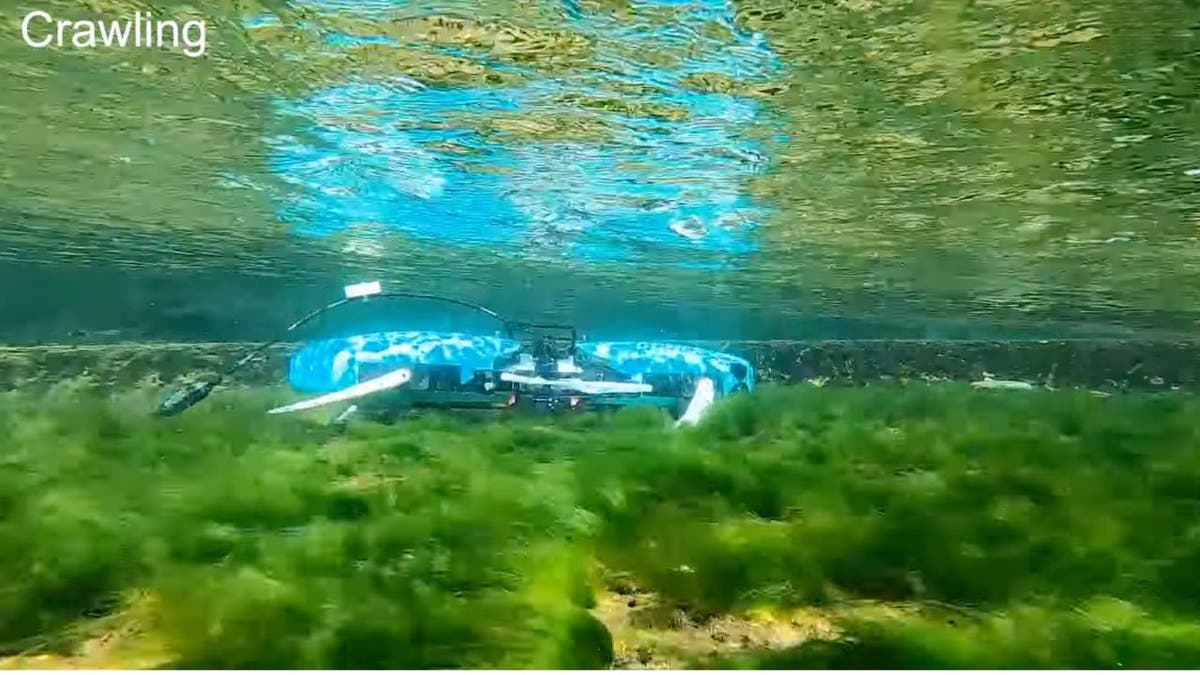
HERO-BLUE (POSTECH) (Kurt “CyberGuy” Knutsson)
MORE: CREEPY CHINESE DRONE SWIMS UNDERWATER AND FLIES THROUGH AIR
Swimming against the current
Traditional ROVs rely on electric thrusters to navigate the watery depths. However, these thrusters have limitations – they can get clogged with debris or struggle against strong currents. Enter HERO-BLUE, the robot that’s not just making a splash but is set to revolutionize underwater missions.
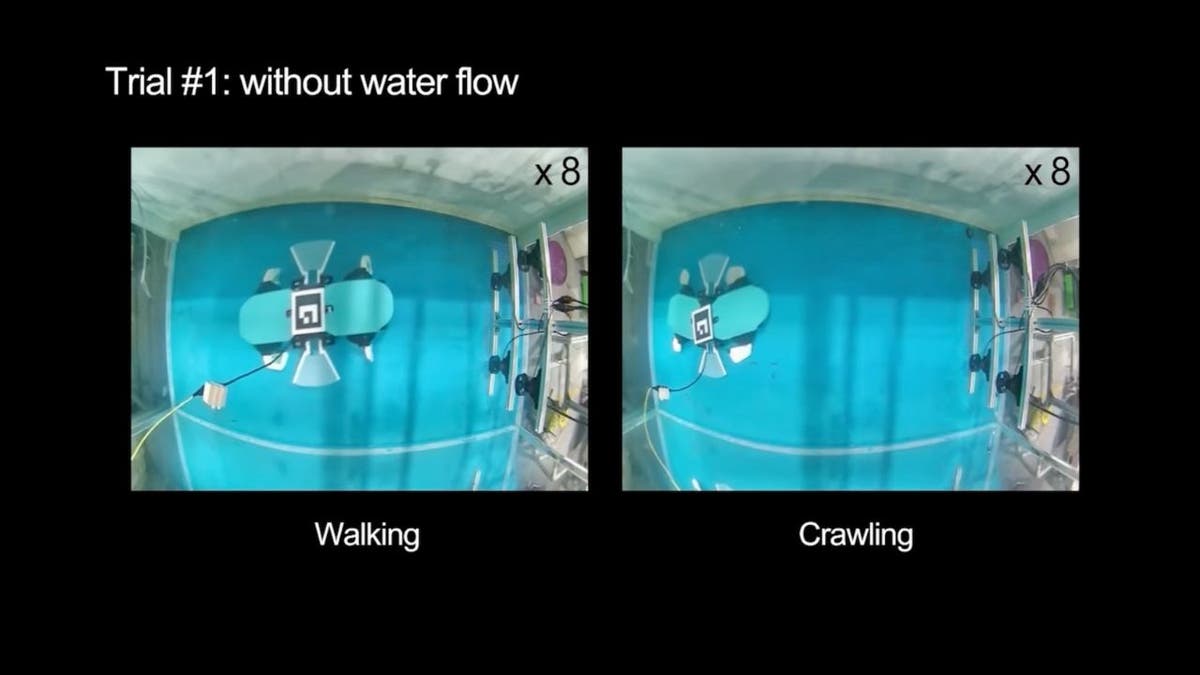
HERO-BLUE (POSTECH) (Kurt “CyberGuy” Knutsson)
MORE: CRAZY FUTURISTIC UNDERWATER JETPACK LETS YOU FLY IN WATER LIKE AQUATIC SUPERHERO
Fin-tastic design
What sets HERO-BLUE apart are its four multimodal fins and two lateral fins. These aren’t just any fins; they’re made of polymer panels connected by elastomer tendons, allowing them to be rigid or flexible as needed. This design enables HERO-BLUE to adapt its movement strategy on the fly – flapping through the water like a fish or walking along the seabed when currents prove too strong.
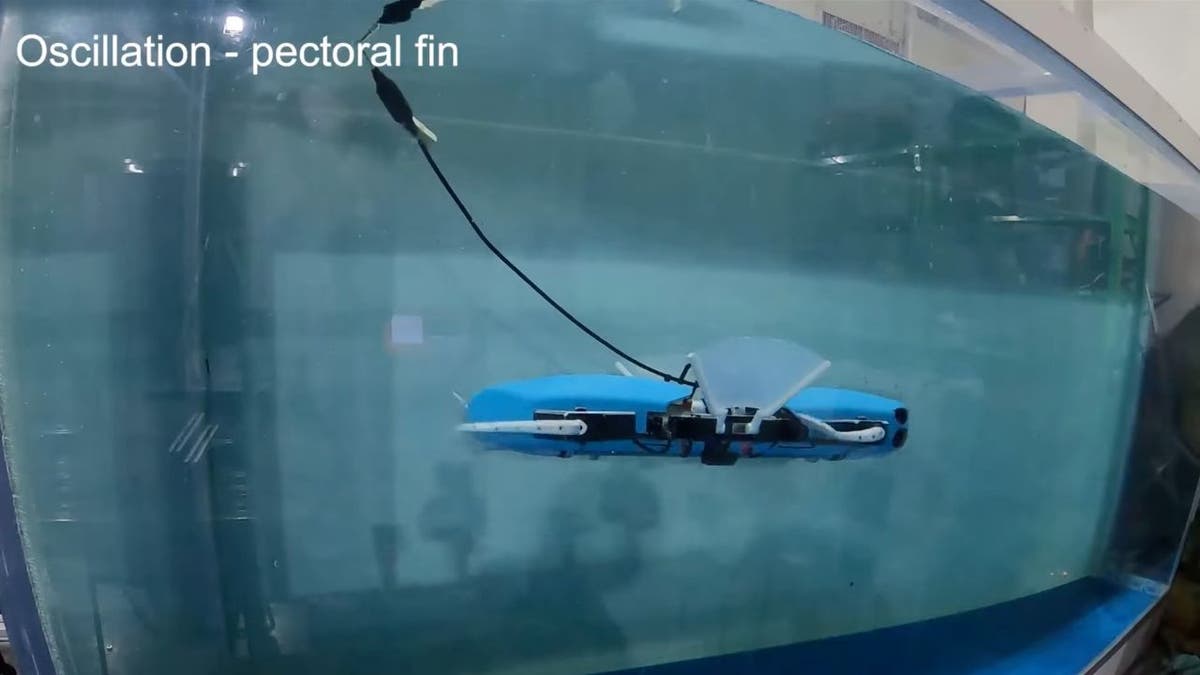
HERO-BLUE (POSTECH) (Kurt “CyberGuy” Knutsson)
MORE: UNFORGETTABLE MOTHER’S DAY GIFTS 2024
The backbone of innovation
In shallow waters where swimming isn’t feasible, HERO-BLUE’s salamander-inspired spine comes into play. This flexible backbone allows the robot to wriggle forward, ensuring progress even in the trickiest conditions.
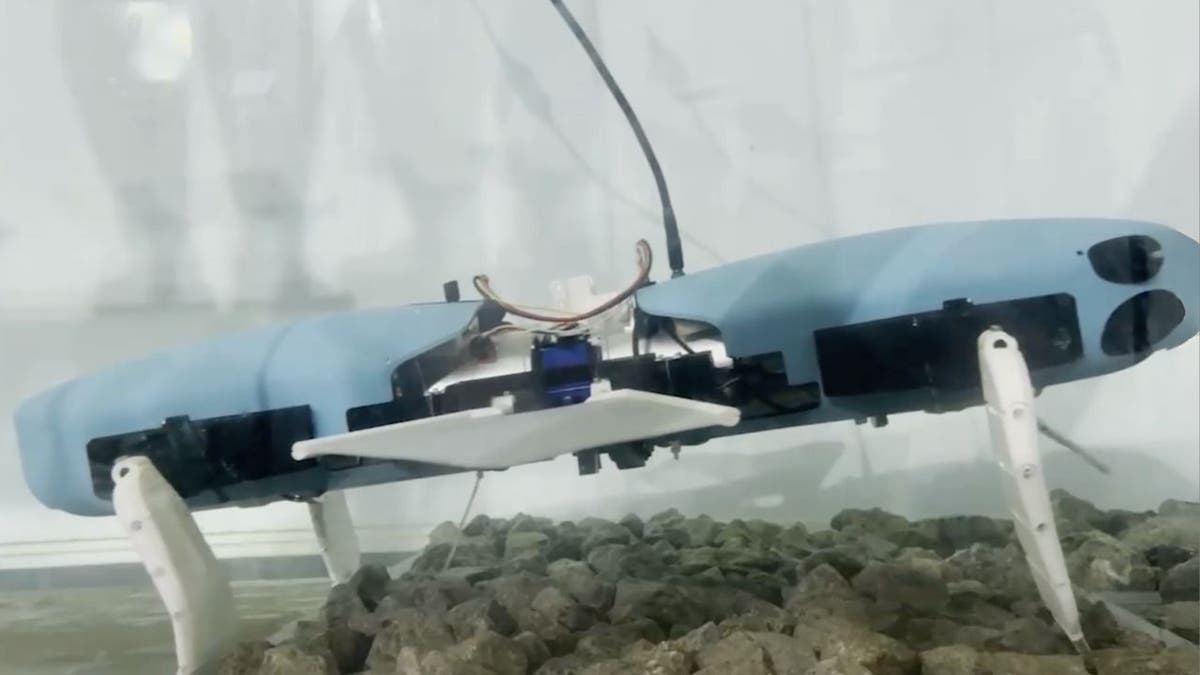
HERO-BLUE (POSTECH) (Kurt “CyberGuy” Knutsson)
Kurt’s key takeaways
HERO-BLUE represents a significant leap forward in ROV technology. Its biomimetic design and multimodal locomotion capabilities position it as a potential game-changer for industries relying on underwater exploration and maintenance. As we look to the depths of our oceans for answers, robots like HERO-BLUE will be at the forefront, navigating the uncharted waters of innovation.
What ethical considerations should be taken into account when deploying robots like HERO-BLUE for underwater exploration, especially in sensitive or protected marine areas? Let us know by writing us at Cyberguy.com/Contact.
For more of my tech tips and security alerts, subscribe to my free CyberGuy Report Newsletter by heading to Cyberguy.com/Newsletter.
Ask Kurt a question or let us know what stories you’d like us to cover.
Answers to the most asked CyberGuy questions:
Copyright 2024 CyberGuy.com. All rights reserved.
